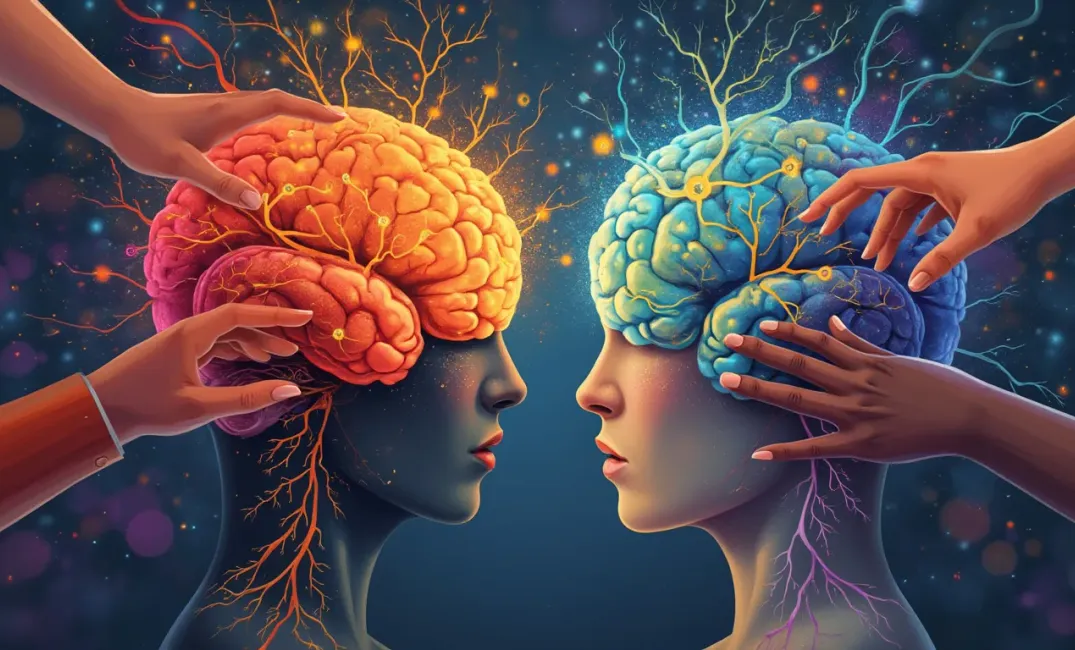Introduction: The Heart's Resonance
"We think we listen, but very rarely do we listen with real understanding, true empathy. Yet listening, of this very special kind, is one of the most potent forces for change that I know." — Carl Rogers
Empathy, the silent architect of connection, intertwines human hearts and minds across eras and geographies. It transcends linguistic barriers, societal constructs, and historical divides, forging bonds through shared emotion and understanding. This entry explores the anatomy of empathy, its critical role in human life, its historical evolution, and the promise it holds for the future of societies navigating the complexities of modern existence.
The Biological Foundation of Empathy: A Natural Imperative
Neurological Underpinnings
- Mirror Neurons and Synaptic Connections: Situated within the brain's parietal and frontal lobes, mirror neurons are activated both during self-action and when witnessing another's actions, fostering a biological basis for empathy by allowing individuals to "mirror" others' experiences.
- The Limbic System's Role: Central to emotional processing, the limbic system—particularly the amygdala and anterior cingulate cortex—supports recognition and response to others' emotional states, modulating empathetic responses through neural pathways.
Evolutionary Significance
- Survival through Cooperation: Empathy, extending beyond mere survival instincts, became crucial in cooperative dynamics—enhancing group cohesion, caring for offspring, and resolving conflicts through mutual understanding.
- Cultural Evolution of Altruism: The evolution of culture catalyzed expanding moral circles, cultivating empathetic traits that prioritized community welfare, societal development, and ethical behaviors consistent with altruistic goals.
Empathy Across Cultures: Expressions and Interpretations
Cultural Perspectives and Variances
- Eastern and Western Philosophies: Eastern traditions, such as Buddhism, emphasize compassion (karunā) and interconnectedness within the human experience, while Western thought examines empathy as a cognitive and emotional resonance, explored through varying psychological and philosophical paradigms.
- Indigenous Perspectives: Diverse indigenous cultures reflect empathy through communal living practices, storytelling, and spiritual beliefs reinforcing relational ethics, respect for nature, and community well-being.
Empathy in Historical Contexts
- Empathy in Ancient Texts: Historical religious and philosophical texts often promote empathetic principles. In Christianity, the Golden Rule ("Do unto others…") epitomizes empathy's ethical facet, mirrored in Islam's concept of compassion (rahmah) and Hinduism's dharma of care.
- Empathy in Art and Literature: Literature and art capture the nuance of empathic bonds, from emotive poetry in the Tang dynasty to Renaissance visual art exploring humanity's moral dilemmas, offering perspectives that intertwine with historical empathy expressions.
Empathy's Influence on Human Society
Societal Benefits and Collective Harmony
- Conflict Resolution and Peacebuilding: Empathy fosters dialogue and mutual respect, critical for nonviolent conflict resolution and peacebuilding efforts, from grassroots reconciliation initiatives to global diplomatic ventures.
- Social Policy and Humanitarianism: Policy informed by empathy promotes social welfare initiatives across healthcare, education, and community development, advocating for marginalized voices through supportive frameworks and resources.
Economic and Organizational Impact
- Empathy in Leadership and Management: Empathic leadership, focusing on understanding, supporting, and engaging team members, enhances organizational culture, employee satisfaction, and productivity, reflecting the importance of empathy in business success.
- Innovation and Collective Intelligence: Empathy drives creative collaboration, fostering environments that support innovative problem-solving through shared insights and diverse perspectives in fields such as science, technology, and creative industries.
The Challenges and Complexities of Empathy
Obstacles to Empathy
- Empathy Fatigue and Distance: Overexposure to others' suffering, often experienced by caregivers and frontline workers, may lead to empathy fatigue, where individuals become emotionally exhausted and detached.
- Cultural and Psychological Barriers: Prejudices, stereotypes, and cultural misunderstandings can hinder empathetic connections, perpetuating conflicts, discrimination, and social isolation despite potential for empathetic engagement.
Navigating Ambiguity in Empathic Responses
- Balance Between Compassion and Rationality: Effective empathy requires balancing emotional resonance with rational decision-making, ensuring that empathic actions align with practical and ethical considerations in complex situations.
- Perspective Taking and Empathy Bias: Conscious and unconscious biases influence empathic responses, mandating self-awareness, critical reflection, and continued growth to overcome perspectives that may limit genuine empathy.
The Future of Empathy: A Path Toward Global Solidarity
Technology and Empathy Enhancement
- Virtual Reality and Empathic Engagement: Virtual reality technologies simulate experiences, enhancing understanding of diverse perspectives, environments, and identities through immersive empathy-driven educational and therapeutic applications.
- AI and Empathic Communication: Artificial intelligence offers potential for developing sophisticated tools that interpret human emotions, enhancing communication efficiency and understanding across cultural and linguistic divides.
Empathy Education and Global Initiatives
- Incorporating Empathy into Education: Embedding empathy in curricula cultivates generations attuned to emotional intelligence and social responsibility, promoting values reflective of cross-cultural dialogue, cooperation, and community engagement.
- Global Empathy Movements: Initiatives such as Empathy Circles and global campaigns emphasize the universality of empathy, advocating for solidarity and cooperation as humanity confronts environmental, social, and geopolitical challenges.
Conclusion: An Empathic Legacy to Unite Generations
"Empathy is about finding echoes of another person in yourself." — Mohsin Hamid
Empathy, a profound bridge uniting human hearts and minds, establishes pathways of understanding across the chasm of time, intricacies of culture, and diversities of identity. As humanity navigates a complex and rapidly evolving world, empathy acts as a guiding force, fostering compassion, creativity, and communal growth.
From our ancient beginnings to our far-reaching cosmic aspirations, empathy remains an indelible cornerstone connecting individuals and societies, nurturing a cohesive vision of inclusion, cooperation, and coexistence. Through a collective empathic legacy, humanity may traverse the challenges and triumphs ahead—safeguarding a future that celebrates the universality of human connection and the limitless potential of our shared experience.
SOCIETY, INNOVATION, GLOBAL SOLIDARITY, HUMAN CONNECTION, CULTURE, EMPATHY, NEUROSCIENCE

